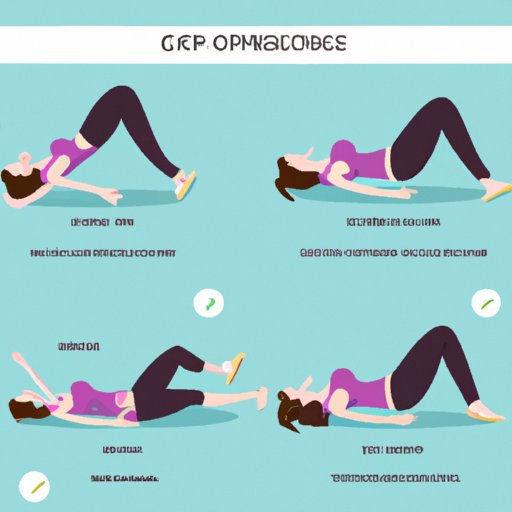
I. Introduction
Pregnancy is an exciting time for expecting mothers, but it can also raise concerns about how their daily habits might affect the health of their unborn child. One of the most common misconceptions is whether exercise can cause miscarriage. In this article, we’ll explore the truth about exercise and its relationship to miscarriages.
II. Breaking down the myth: The truth about exercise and miscarriage
A popular myth surrounding pregnancy holds that exercise can cause miscarriage. While this idea has been debunked by medical professionals for decades, it continues to persist in society. The perpetuation of this myth can lead to unnecessary fear and anxiety for pregnant mothers, ultimately affecting their overall physical and mental health.

III. What Expecting Moms Need to Know: Exercise and Miscarriage
Exercise is important for pregnant women as it can help maintain a healthy weight, reduce stress, and prepare the body for labor. Expecting moms should aim to perform low-impact exercises such as walking, swimming or prenatal yoga. It’s recommended that expectant mothers perform these exercises for at least 30 minutes, 3-4 times a week.
IV. Separating Fact from Fiction: Can Exercise Really Cause a Miscarriage?
Despite the prevalence of this misconception, research has yet to find a concrete link between exercise and miscarriage. Hormonal imbalances, infections, and medical complications are some of the more common factors that can lead to pregnancy failure. Following proper exercise guidelines can actually improve pregnancy outcomes, including reducing the risk of pregnancy complications, such as gestational diabetes and high blood pressure.
V. The Debate on Exercise During Pregnancy: A Look at Miscarriage Risks
There is a debate on the safety and appropriateness of exercise during pregnancy. While aerobic exercise is generally safe for most pregnant women, there are some forms of exercise that may pose a risk during pregnancy. These may include heavy lifting, high impact sports, and certain types of twists and stretches. However, moderate exercise can be beneficial for expectant mothers and their fetus.
VI. Exploring the Link Between Exercise and Miscarriage: What the Research Says
Several studies have been carried out to investigate this topic over the years. One study found that women who exercised regularly during pregnancy had a lower risk of developing preeclampsia and gestational diabetes while another study found that exercise had no effect on the risk of miscarriage. Research supports that following proper exercise guidelines can help reduce risks of pregnancy complications.
VII. Safely Navigating Exercise during Pregnancy: The Truth about Miscarriages
Expectant mothers must follow safe exercise guidelines to safeguard the health of their unborn child. This includes wearing comfortable clothing, staying hydrated, avoiding exercising in hot and humid environments, and choosing low-impact activities. Women should also modify exercises for pregnancy needs, such as avoiding exercises that involve lying on their back after the first trimester.
VIII. Preventing Miscarriage: How to Incorporate Safe Exercise Practices During Pregnancy
Exercise can be a beneficial practice for expectant mothers in preventing miscarriage. However, exercise alone is not enough to prevent miscarriage. Women need to adopt holistic methods, such as eating a healthy diet, managing stress, and getting sufficient rest.
Conclusion
While there has been much debate, research has yet to find a link between exercise and miscarriage. Exercise can actually improve pregnancy outcomes as long as it is performed within safe parameters. Expectant mothers should speak to their doctor about what types of exercise they can perform and follow safe exercise guidelines to avoid any potential risks.




